The Redbreast (Harry Hole) Read online
Page 3
‘In a nutshell?’ the old man had asked in the voice of someone he had not heard in more than fifty years. They had been the hollow, rough, guttural sounds of a man with mortal dread quivering in his vocal cords.
‘Yes, there is in fact a question about —’
‘Please, doctor. I’ve looked death in the eye before.’
He had raised his voice, chosen words which forced it to stay firm, the way he wanted Dr Buer to hear them. The way he himself wanted to hear them.
The doctor’s gaze had flitted across the table top, across the worn parquet floor and out of the dirty window. It had taken refuge out there for a while before returning and meeting his own. His hands had found a cloth to clean his glasses again and again.
‘I know how you —’
‘You know nothing, doctor.’ The old man had heard himself utter a short, dry laugh. ‘Don’t take offence, Dr Buer, but I can guarantee you one thing: you know nothing.’
He had observed the doctor’s discomfort and at the same time heard the tap dripping into the sink at the far end of the room. It was a new sound, and all of a sudden and incomprehensibly he seemed to have the hearing of a twenty-year-old.
Then Dr Buer had put his glasses back on, lifted a piece of paper as though the words he was going to say were written on it, cleared his throat and said: ‘You’re going to die, old chap.’
The old man would have preferred a little less familiarity.
He stopped by a gathering of people, where he heard a guitar being strummed and a voice singing a song that must have sounded old to everyone except him. He had heard it before, probably a quarter of a century ago, but to him it could have been yesterday. Everything was like that now – the further back in time it was, the closer and the clearer it seemed. He could remember things he hadn’t thought of for years. Now he could close his eyes and see things projected on his retina that he had previously read about in his war diaries.
‘You should have a year left, at any rate.’
One spring and one summer. He would be able to see every single yellowing leaf on the deciduous trees in Studenterlunden as if he were wearing new, stronger glasses. The same trees had stood there in 1945, or had they? They hadn’t been very clear on that day, nothing had. The smiling faces, the furious faces, the shouts he barely heard, the car door being slammed shut and he might have had tears in his eyes because when he recalled the flags people were waving as they ran along the pavements, they were red and blurred. Their shouts: The Crown Prince is back!
He walked up the hill to the Palace where several people had collected to watch the changing of the guard. The echo of orders and the smack of rifle stock and boot heels reverberated against the pale yellow brick façade. There was the whirr of video cameras and he caught some German words. A young Japanese couple stood with their arms around each other, happily watching the show. He closed his eyes, tried to detect the smell of uniforms and gun oil. It was nonsense, of course; there was nothing here that smelled of his war.
He opened his eyes again. What did they know, these black-clad boy soldiers who were the social monarchy’s parade-ground figures, performing symbolic actions they were too innocent to understand and too young to feel anything about. He thought about that day again, of the young Norwegians dressed as soldiers, or ‘Swedish soldiers’ as they had called them. In his eyes they had been tin soldiers; they hadn’t known how to wear a uniform, even less how to treat a prisoner of war. They had been frightened and brutal; with cigarettes in their mouths and their uniform caps at a rakish slant, they had clung to their newly acquired weapons and tried to overcome their fear by smacking their rifle stocks into the prisoners’ backs.
‘Nazi swine,’ they had said as they hit them, to receive instant forgiveness for their sins.
He breathed in and savoured the warm autumn day, but at that moment the pain came. He staggered backwards. Water in his lungs. In twelve months’ time, maybe less, the inflammation and the pus would produce water, which would collect in his lungs. That was said to be the worst.
You’re going to die, old chap.
Then came the cough. It was so violent that those standing closest to him moved away involuntarily.
4
Ministry of Foreign Affairs, Viktoria Terrasse. 5 October 1999.
THE UNDER SECRETARY FOR FOREIGN AFFAIRS, BERNT Brandhaug, strode down the corridor. He had left his office thirty seconds ago; in another forty-five he would be in the meeting room. He stretched his shoulders inside his jacket, felt that they more than filled it out, felt his back muscles strain against the material. Latissimus dorsi – the upper back muscles. He was sixty years old, but didn’t look a day over fifty. Not that he was preoccupied with his appearance. He was well aware that he was an attractive man to look at, without needing to do very much more than the training that he loved anyway, as well as putting in a couple of sessions in the solarium in the winter and regularly plucking the grey hairs from what had become bushy eyebrows.
‘Hi Lise!’ he shouted as he passed the photocopier, and the young Foreign Office probationer jumped, managing only a wan smile before Brandhaug was round the next corner. Lise was a newly fledged lawyer and the daughter of a friend from university days. She had started only three weeks ago. And from that moment she had been aware that the Under Secretary, the highest civil servant in the building, knew who she was. Would he be able to have her? Probably. Not that it would happen. Necessarily.
He could already hear the buzz of voices before he opened the door. He looked at his watch. Seventy-five seconds. Then he was inside, casting a fleeting glimpse around the room to confirm that all the authorities summoned were represented.
‘Well, well, so you’re Bjarne Møller?’ he shouted with a broad smile as he offered his hand across the table to a tall thin man sitting beside Anne Størksen, the Chief Constable.
‘You’re the PAS, aren’t you? I hear you’re running the roller-coaster leg of the Holmenkollen relay?’
This was one of Brandhaug’s tricks. Coming by a little piece of information about people he met for the first time. Something that wasn’t in their CV. It made them insecure. Using the acronym PAS – the internal abbreviation for Politiavdelingssjef, the head of Crime Squad – particularly pleased him. Brandhaug sat down, winked at his old friend Kurt Meirik, the head of Politiets overvåkningstjeneste, or POT, the Security Service, and studied the others sitting round the table.
As yet, no one knew who would take charge of the meeting as the representatives were equally high ranking, theoretically at least, coming from the Prime Minister’s Office, Oslo police district, Norwegian Security Service, Crime Squad and Brandhaug’s own Ministry of Foreign Affairs. The Prime Minister’s Office had called the meeting, but there was no doubt that Oslo police district, in the guise of Anne Størksen, and POT, in the shape of Kurt Meirik, wanted the operational responsibility when procedures were that far advanced. The Under Secretary of State from the Prime Minister’s Office looked as if he envisaged taking charge.
Brandhaug closed his eyes and listened.
The nice-to-see-you conversations stopped, the buzz of voices slowly subsided and a table leg scraped on the floor. Not yet. There was the rustling of papers, the clicking of pens – at important meetings like these most heads of department had their personal note-takers with them in case at a later point they began to blame each other for things that had happened. Someone coughed, but it came from the wrong end of the room and apart from that it wasn’t the kind of cough that preceded speaking. Sharp intake of breath. Someone spoke.
‘Let’s begin then,’ Bernt Brandhaug said, opening his eyes.
Heads turned towards him. It was the same every time. A half-open mouth, the Under Secretary of State’s; a wry smile from Anne Størksen showing that she understood what had taken place – but otherwise, blank faces looking at him without a hint of recognition that the battle was already over.
‘Welcome to the first co-ordination meeting. Our task is t
o get four of the world’s most important men in and out of Norway more or less in one piece.’
Polite chuckles from around the table.
‘On Monday, 1 November, we will receive a visit from the PLO leader Yasser Arafat, the Israeli PM Ehud Barak, the Russian PM Vladimir Putin and, last but not least, the cherry on the cake: at 6.15 a.m., in exactly twenty-seven days’ time, Air Force One, with the American President on board, will be landing at Gardemoen Airport, Oslo.’
Brandhaug’s gaze moved from face to face down the table. It stopped at the new one, Bjarne Møller’s.
‘If it isn’t foggy, that is,’ he said, earning himself a laugh and noticing with satisfaction that Møller forgot his nervousness for a moment and laughed along with the others. Brandhaug responded with a smile, revealing his strong teeth which had become even whiter since his last cosmetic treatment at the dentist’s.
‘We still don’t know exactly how many people are coming,’ Brandhaug said. ‘The President had an entourage of 2,000 in Australia and 1,700 in Copenhagen.’
Mumbles around the table.
‘However, in my experience, a guesstimate of around 700 is probably more realistic.’
Brandhaug was quietly confident his ‘guesstimate’ would soon be confirmed as he had received a fax an hour before with a list of the 712 people coming.
‘Some of you are probably wondering why the President needs so many people for a two-day summit meeting. The answer is simple. What we are talking about here is the good old-fashioned rhetoric of power. Seven hundred, if my assessment is correct, is precisely the number of people Kaiser Friedrich III had with him when he entered Rome in 1468 to show the Pope who the most powerful man in the world was.’
More laughter round the table. Brandhaug winked at Anne Størksen. He had found the reference in Aftenposten. He brought his two palms together.
‘I don’t need to tell you how short a time two months is, but it means that we’re going to need daily co-ordination meetings at ten in this room. Until these four men are off our hands you’ll just have to drop everything else. There’s a bar on holidays and time off. And sick leave. Any questions before we go on?’
‘Well, we think —’ the Under Secretary of State began.
‘That includes depressions,’ Brandhaug interrupted, and Bjarne Møller couldn’t help laughing out loud.
‘Well, we —’ the Under Secretary began again.
‘Over to you, Meirik,’ Brandhaug called.
‘What?’
The Head of the Security Service (POT) raised his shiny pate and looked at Brandhaug.
‘You wanted to say something about POT’s threat assessment?’ Brandhaug said.
‘Oh that,’ Meirik said. ‘We’ve brought copies with us.’
Meirik was from Tromsø and spoke a strangely haphazard mixture of Tromsø dialect and standard Norwegian. He nodded to a woman sitting beside him. Brandhaug’s eyes lingered on her. OK, she wasn’t wearing make-up, and her short brown hair was cut in a bob and held in an unbecoming hairslide. And her suit, a blue woollen job, was downright dull. But even though she had made herself look exaggeratedly sober, in the way that professional women who were afraid of not being taken seriously often did, he liked what he saw. Brown, gentle eyes and high cheekbones gave her an aristocratic, almost un-Norwegian appearance. He had seen her before, but the haircut was new. What was her name again – it was something biblical – Rakel? Perhaps she was recently divorced. That might explain the new haircut. She leaned over the attaché case between her and Meirik, and Brandhaug’s eyes automatically sought the neckline on her blouse, but it was buttoned too high to show him anything of interest. Did she have children of school age? Would she have any objections to renting a room in one of the city centre hotels during the day? Was she turned on by power?
Brandhaug: ‘Just give us a short resumé, Meirik.’
‘Fine.’
‘I would like to say one thing first . . .’ the Under Secretary of State said.
‘Shall we let Meirik finish first? Then you can say as much as you like afterwards, Bjørn.’
That was the first time Brandhaug had used the Under Secretary’s Christian name.
‘POT considers there to be a risk of an attack or the infliction of other damage,’ Meirik said.
Brandhaug smiled. Out of the corner of his eye he saw the Chief Constable do the same. Smart girl, law degree and flawless administrative record. Perhaps he ought to invite her and her husband to a trout supper one evening. Brandhaug and his wife lived in a spacious timber house in the green belt in Nordberg. In winter you had only to put on your skis outside the garage and you were off. Brandhaug loved the house. His wife had thought it was too black. She said that all the dark wood made her afraid, and she didn’t like the forest being around them, either. Yes, an invitation to supper. Solid timber, and fresh trout he’d caught himself. They were the right signals to give.
‘I may remind you that four American presidents have died as a result of assassinations. Abraham Lincoln in 1865, James Garfield in 1881, John F. Kennedy in 1963 and . . .’
He turned to the woman with the high cheekbones who mouthed the name.
‘Oh, yes, William McKinley. In . . .’
‘1901,’ Brandhaug said with a warm smile and a glance at his watch.
‘Exactly. But there have been a great many more attempts over the years. Harry Truman, Gerald Ford and Ronald Reagan were all targets of serious attacks while they were in office.’
Brandhaug cleared his throat: ‘You’re forgetting that the present incumbent was shot at a few years ago. Or at least his house was.’
‘That’s true. But we don’t include that type of incident as there would be too many. I doubt that any American president over the last twenty years has completed his term of office without at least ten attempts on his life being uncovered and the perpetrator arrested. The media were none the wiser.’
‘Why not?’
Crime Squad chief Bjarne Møller imagined he had only thought the question and was as surprised as the others when he heard his own voice. He swallowed when he noticed the heads turning and tried to keep his eyes on Meirik, but couldn’t help them wandering in Brandhaug’s direction. The Under Secretary for Foreign Affairs winked reassuringly.
‘Well, as you know, it’s usual to keep attempted assassinations under wraps,’ Meirik said, taking off his glasses. They looked like the glasses which go darker as you go into the sun, worn by Horst Tappert in the Oberinspektor Derrick role, very popular with German mail-order catalogues.
‘Attempted assassinations have proved to be at least as contagious as suicides. And besides, we in the field don’t want to reveal our working practices.’
‘What plans have been made regarding surveillance?’ the Under Secretary of State asked.
The woman with the cheekbones passed Meirik a sheet and he put on his glasses again and read it.
‘Eight men from the Secret Service are coming on Thursday. We will then start going through the hotels and the route, vet all those who will come into contact with the President and train the Norwegian police officers we’re going to deploy. We’ll need to call in units from Romerike, Asker and Bærum.’
‘And they will be used to what end?’ Brandhaug asked.
‘Mainly observation duties. Around the American embassy, the hotel where the entourage will be staying, the car park —’
‘In short, all the places where the President isn’t.’
‘POT will take care of that. With the American Secret Service.’
‘I thought you didn’t like doing surveillance jobs, Kurt?’ Brandhaug said with a smirk.
The memory caused Kurt Meirik to grimace. During the Mining Conference in Oslo in 1998, POT had refused to offer surveillance on the basis of their own threat assessment. They concluded it was ‘medium to low security risk’. On the second day of the conference the Norwegian Directorate of Immigration drew the conference’s attention to the fact that one of
the Norwegian drivers POT had cleared for the Croat delegation was a Bosnian Muslim. He had come to Norway in the 1970s and had Norwegian citizenship for many years. But in 1993 both his parents and four members of his family had been butchered by Croats at Mostar, in Bosnia Herzegovina. When the man’s flat was searched they had found two hand-grenades and a suicide letter. Of course, the press had never got a sniff of it, but the repercussions reached government level, and Kurt Meirik’s career had hung in the balance until Bernt Brandhaug himself had intervened. The matter had been hushed up after the police inspector in charge of the security clearances had resigned. Brandhaug couldn’t remember the man’s name, but ever since then his working relations with Meirik had been excellent.
‘Bjørn!’ Brandhaug exclaimed, clapping his hands together. ‘Now we’re all keen to hear what it was you wanted to tell us. Come on!’
Brandhaug scanned the room, swiftly moving past Meirik’s assistant, but not so swiftly that he didn’t notice her looking at him. That is, she was looking in his direction, but her eyes were expressionless, blank. He considered whether to return her look, to see what expression would emerge when she realised what he was doing, but he dropped the idea. What was her name? Rakel, wasn’t it?
5
Palace Gardens. 5 October 1999.
‘ARE YOU DEAD?’
The old man opened his eyes and saw the outline of a head standing over him, but the face merged into a corona of white light. Was it her? Had she come to collect him already?
‘Are you dead?’ the bright voice repeated.
He didn’t answer because he didn’t know whether his eyes were open or he was simply dreaming. Or, as the voice asked him, if he was dead.

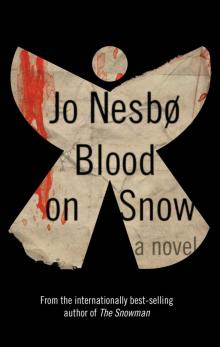 Blood on Snow: A novel
Blood on Snow: A novel Police: A Harry Hole thriller (Oslo Sequence 8)
Police: A Harry Hole thriller (Oslo Sequence 8) Doctor Proctor's Fart Powder: The Great Gold Robbery
Doctor Proctor's Fart Powder: The Great Gold Robbery Bubble in the Bathtub
Bubble in the Bathtub Doctor Proctor's Fart Powder: Time-Travel Bath Bomb
Doctor Proctor's Fart Powder: Time-Travel Bath Bomb The Bat
The Bat Doctor Proctor's Fart Powder: The End of the World. Maybe.
Doctor Proctor's Fart Powder: The End of the World. Maybe. Silent (but Deadly) Night
Silent (but Deadly) Night Who Cut the Cheese?
Who Cut the Cheese? Headhunters
Headhunters The Jealousy Man and Other Stories
The Jealousy Man and Other Stories Harry Hole Mysteries 3-Book Bundle
Harry Hole Mysteries 3-Book Bundle The Thirst
The Thirst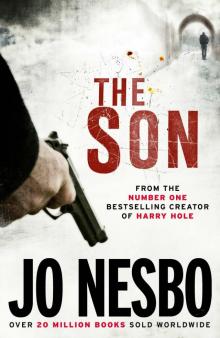 The Son
The Son The Redeemer
The Redeemer The Kingdom
The Kingdom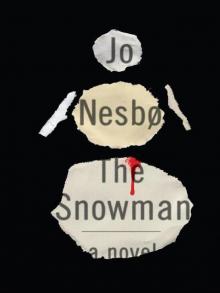 The Snowman
The Snowman The Redbreast
The Redbreast Phantom
Phantom Macbeth
Macbeth The Leopard
The Leopard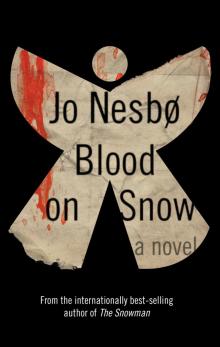 Blood on Snow
Blood on Snow Midnight Sun
Midnight Sun The Redbreast (Harry Hole)
The Redbreast (Harry Hole)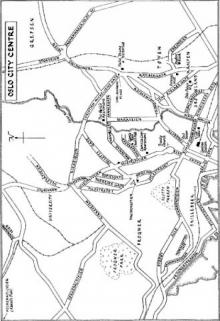 The Devil's Star
The Devil's Star Cockroaches
Cockroaches The Magical Fruit
The Magical Fruit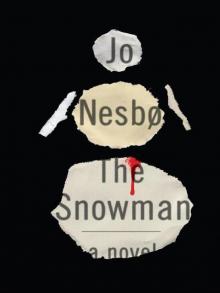 The Snowman: A Harry Hole Novel
The Snowman: A Harry Hole Novel Doctor Proctor's Fart Powder
Doctor Proctor's Fart Powder The Cockroaches
The Cockroaches Knife
Knife Phantom hh-9
Phantom hh-9 The Redbreast hh-3
The Redbreast hh-3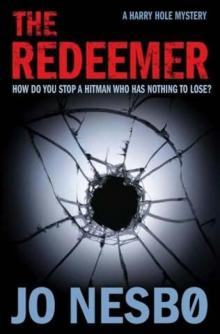 The Redeemer hh-6
The Redeemer hh-6 The Leopard hh-8
The Leopard hh-8 The Leopard: An Inspector Harry Hole Novel
The Leopard: An Inspector Harry Hole Novel The Great Gold Robbery
The Great Gold Robbery Police hh-10
Police hh-10 The End of the World. Maybe
The End of the World. Maybe The Thirst: Harry Hole 11
The Thirst: Harry Hole 11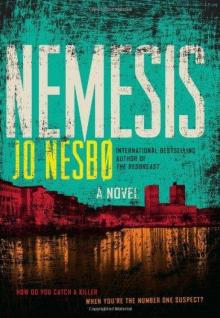 Nemesis - Harry Hole 02
Nemesis - Harry Hole 02 The Devil's star hh-5
The Devil's star hh-5 Time-Travel Bath Bomb
Time-Travel Bath Bomb